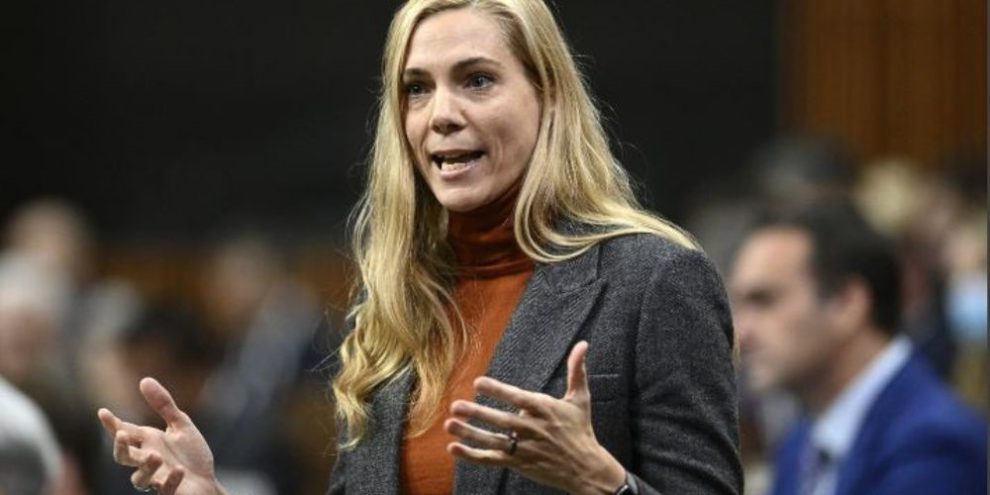
By Donna Spencer
Canada's sports minister has committed $2.4 million in crisis funding for athletes' mental health.
Pascale St-Onge announced Monday in Montreal the money will support crisis care, education and training for Olympic and Paralympic athletes and coaches.
A wave of active and retired athletes have pointed to abusive and toxic environments in Canadian high-performance sport. They've demanded culture change from the system and their federations, and there have also been calls for a national inquiry into sport.
St-Onge told The Canadian Press her conversations with athletes touched on two themes: the stress and isolation of training for and competing in two Olympic Games through COVID-19 restrictions, as well as anxiety and tension over relationships with those who oversee and manage them.
"One thing that became really clear to me is athletes are right now going through a difficult time," St-Onge said in a phone interview. "There's a lot of anxiety.
"The past few months have been pretty hard on athletes around the conversation about safe sport, about all the abuse, harassment and sometimes sexual abuse that we hear about in many different sports."
The additional money is to give athletes access to mental health care professionals where they train and compete.
"They have access to psychological support, but that's very aimed at sport performance and helping them achieve their goals," St-Onge explained.
"This is a new element. The goal is to have people on site directly where the athletes train and compete, so when there is a situation, they have support on site to deal with those matters."
St-Onge referred to bobsled and skeleton athletes and their adversarial relationship with their leadership. More than 70 athletes called for the resignation of the federation's president and high-performance director throughout the summer.
A new president was elected in November.
"I was extremely worried about the impact it had on them because when they're performing, it's such a high-speed sport, they are actually putting themselves at risk," St-Onge said.
"If they are not completely focused on what they are doing and their technique, if they're worried about stuff happening outside, it can really be dangerous for them. I felt it was necessary to provide direct support for these types of situations."
Three-time Olympic bobsledder Neville Wright, who represents his sport and track and field on AthletesCan's board of directors, says the mental-health funding is a start.
"There's an immediate need for mental-health resources," he said. "With everything that's going on in sport right now, there's definitely a need right now.
"But I think if somehow we can shift the culture, change the culture and improve culture overall, maybe the need for mental-health resources could potentially go down."
The money will be administered via the network of sports institutes across the country and the Canadian Olympic Committee's wellness program Game Plan.
St-Onge launched the office of the sport integrity commissioner in June to handle complaints. The office received 24 complaints between June and September.
Sport organizations must become signatories to the office in order to receive federal funding.
"I'm working on a lot of things to change the sports system to make the environment more safe for athletes," St-Onge said. "This was something I felt was needed right now."
Two parliamentary committees have held hearings on Canadian sport in recent months. A Heritage Committee held Hockey Canada's feet to the fire over its handling of alleged sexual assaults.
Female athletes testified in front of a Status of Women committee on sport safety for women and girls earlier this month.
"The two committees that are studying right now the sport system are doing a great job and asking the right questions," St-Onge said.
"The Heritage Committee is looking more at the governance piece of sports federations and the Status of Women Committee is talking to victims, listening to their stories, and also experts that have worked all their lives in safe-sport research and environment.
"We're still waiting for their recommendations. They're going to be extremely important. There's so many things we need to work on."
Banner image: THE CANADIAN PRESS/Justin Tang
This report by The Canadian Press was first published Dec. 12, 2022.





